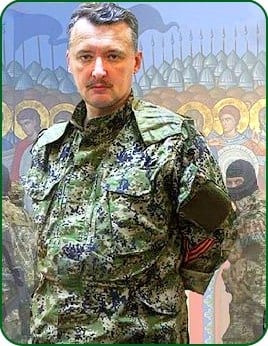 [T]he Strelkov press conference on Sept. 11 (2014) is, I believe, a historical moment because it marks the move of Strelkov from the Novorussian military struggle into the much larger, and far more dangerous struggle, the struggle for the political future of Russia. This in itself is no necessarily unexpected, but the way he did it was a surprise, at least for me. But before I zoom out to the bigger picture, I think that it would be helpful to try to summarize some of the key points of his presentation (thanks to Marina, you can download the full English transcript by clicking here and the Q&A is here).
[T]he Strelkov press conference on Sept. 11 (2014) is, I believe, a historical moment because it marks the move of Strelkov from the Novorussian military struggle into the much larger, and far more dangerous struggle, the struggle for the political future of Russia. This in itself is no necessarily unexpected, but the way he did it was a surprise, at least for me. But before I zoom out to the bigger picture, I think that it would be helpful to try to summarize some of the key points of his presentation (thanks to Marina, you can download the full English transcript by clicking here and the Q&A is here).
https://www.youtube.com/watch?v=c0-jtNKlpWU
Here is how I summarized what I saw as the key elements of his presentation:
External factors (staging) – symbolic message:
- He is clearly alive and well
- The reason for his departure was infighting inside the Novorussian leadership and the fact that he was told that supplies would only be delivered if he left.
- The photo of Putin in the back on the wall
- He is sitting behind a Russian monarchist flag on the table (and a Russian and Novorussian flag in the back (no Soviet or Communists symbols)
His view about the ceasefire agreement:
- This ceasefire has now created military situation is now worse than this spring
- What is disgraceful is not the ceasefire by itself but “the conditions which are now being discussed in Minks”
- There is plan to blame the betrayal of Novorussia on Putin
- There are powerful interests which want a never ending war which would create a bleeding ulcer for Russia
His description of the 5th column:
- The roots of this 5th column go back to the Eltsin years
- The liberation of Crimea took the 5th column by surprise
- The 5th column is around President
- There is a local 5th column in Donbass which has been and still is negotiating with Ukie oligarchs
- The 5th column is composed of “liberals”
- Putin is a moral threat to them because he has massive popular support
- They want to overthrow Putin
- They want to dismember Russia
- This will be a long war on Russia
- We are dealing with another 1905 and 1917 like situation
- By saving Novorussia Russia can save itself
- Western sanctions will hurt Russia and they will use them to discredit Putin
Strelkov’s plans
- Strelkov wants to fight inside Russia in support of Putin (only option)
- Strelkov’s main objective is to denounce the real traitors inside Russia
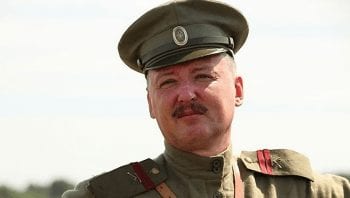
Comdr. Strelkov. (Click to enlarge)
This is my personal rendition of the key elements of Strelkov’s presentation, and I might have missed or misunderstood something, so I therefore encourage everybody to watch the video again and read the transcript.
ZOOMING OUT TO THE GREATER CONTEXT
Before going further into my analysis of Strelkov’s statements, I think that it is crucial to keep the bigger context in mind. His words are not just the words of a man speaking for the Novorussian Armed Forces (NAF) or a Novorussia hero, this time Strelkov is diving straight into the big and dangerous world of Russian “deep state” politics (though the term “deep state” does not really apply to Russia). So I will now return to a topic I have been covering for many years now.
Long-time readers will probably recall that I often spoke of a behind-the-scenes struggle between what I called the “Eurasian Sovereignists” (ES) and the “Atlantic Integrationists” (AI). I will not repeat it all here, but I do encourage you to read the following articles:
The two first articles are part of a much longer seven-part series on Islam, but they introduce the historical context of the development of the ES and AI factions. The next two I would consider mandatory reading if you are not familiar with the topic and the last one is just a more recent discussion of the role of these two factions in the current Cold War v2. Having said that, my key thesis is this:
The “5th column” Strelkov refers to are the very same people I call Atlantic Integrationists.
Strelkov names no names, but he describes them very accurately (see above) and he adds that they only value “money and other material resources”. They are the Russian equivalent of the AngloZionist 1%ers. Their main political goal is to fully integrate Russia into the AngloZionist international system on a financial, political, economic and cultural levels. They see Russia as “European” and they believe that “the West” (i.e. the AngloZionist Empire) and Russia need to stand together against Islam, China and any other non-imperial ideology, religion, nation or alliance. They believe in capitalism and they are opposed to a “social state” (to use Putin’s description of modern Russia) and they are systematically contemptuous of the “masses” though they try hard not to show this aspect of their worldview. These are the folks who gradually took power during the 1980s and who had the predatory instincts to seize the moment in the early 1990s to rapidly and ruthlessly acquire an absolutely unimaginable amount of wealth, stolen from the Russian people.
Now, it is true that due to an absolutely brilliant move by the Russian security services during the late 1990s and thanks to the chaos in which Russia was plunged, these AI (aka 5th columnists) did make a fatal mistake. Their plan was to put forward a rather uninspiring and dull bureaucrat into power and surround him by men coming from their own circles. What they did not foresee is that this rather uninspiring and dull bureaucrat would turn into one of the most formidable statesmen in Russian history – Putin – and that he would immediately set out to decapitate the top layers of the AI – the so-called “oligarchs” and the thugs who enforced their rule – and their armed branch- the Chechen Wahabi insurgency. Putin acted so fast that he rapidly ended up in full control of the so-called “power ministries” (state security, presidential security, internal affairs, armed forces, emergency services) and, which is crucial, an immense popular support. In a way, this combination of state power and popular support made Putin untouchable, but that also limited his power.
While the top and most notorious AI columnists either left Russia (Berezovsky) or were put in jail (Khodorkovsky) or died, the system they had created was still very much in place. Banking, the natural resources industry, the weapons trade, financial services and, of course, the media were still very much in their hands. So when the most arrogant one of them, Khodorkovsky, was jailed the two factions (ES and AI) achieved something of a compromise, a temporary ceasefire if you wish. The deal was this: first, as long as they don’t try to take over the Kremlin and generally stay out of politics, the AI would be allowed to keep their wealth and continue to make huge profits; second, the top power would be shared between the ES (Putin, Rogozin, Patrushev, etc.) and the AI (Medvedev, Kudrin, Surkov, etc.).
The first big blow which Putin delivered against the AI was the firing of Serdiukov and, even “worse”, his replacement with Shoigu. The second massive blow was, according to Strelkov (and I agree), the operation to liberate Crimea. According to Strelkov, this operation was a huge blow to the interests of these 5th columnist because they immediately realized that it would set Russia and the AngloZionists on a collision course. They therefore gathered all their forces to a) prevent a Russian military intervention in the Donbass and b) make a deal with the oligarchs now in power in Kiev. I fully share this analysis.
Russian vs Novorussian strategic interests
Here comes the tricky part. There are a few assumption made by many bloggers which are the result of a fundamental flaws in logic:
- Russian and Novorussian interests are one and the same
- Anything supported by the AI is bad for Russia
- Putin is in full control and can do whatever he wants
- Novorussian leaders are always right by virtue of their heroic struggle
- Disagreeing with Novorussian leader is a sign of stupidity, betrayal or dishonesty (including for Putin himself)
Reality is not quite that simple. For one thing, Russian and Novorussian interests are not only one and the same, they are in direct opposition on a crucial matter: Novorussia wants full independence from Kiev(whoever is in power) while Russia wants regime change in Kiev and maintain a unitary Ukraine. Second, while the fact that Russian and Ukrainian oligarchs are trying to hammer out a deal to stop the war and maintain a unitary Ukraine this might or might not be bad for Russia. Now, before I get accused of God only knows what, let me explain:
During the late 1980s and the 1990s a bizarre kind of “partial fusion” took place between the Russian mob and the KGB. I know, sounds crazy, but it is nonetheless true and yours truly has personally seen it and personally met ex-KGB officers working in the Russian mob. However, as some say, there is no such thing as an “ex-KGB” officer. Well, in reality there is, but in most cases, at least informal contacts are maintained. So here is how I would very roughly summarize this bizarre association:
In the 1980s: corrupt KGB officers realize that a lot of money can be made in the underworld and some official of the internal security branch of the KGB (2nd Main Directorate) found ways to profit from tight contacts with the mob.
In the early 1990: a lot of young and smart KGB officers realize that their skills are useless in the KGB, they resign and immediately find very good positions in the “New Russian” world (at that time 100% mobsters) and use their skills (language, education, work capability, courage) to make loads of money
These were terrible years for the KGB/FSB, but they also had one positive impact: the more corrupt and less patriotic officers left leaving many idealists behind them, idealists which would, with time, climb up the ranks.
Now here comes the really interesting part:
In the mid 1990s-2000: the successor to the KGB, the SVR and FSB came to realize that they had a fantastic network of potential collaborators in the newly created world of Russian business, finance, commerce, tourism, etc. They act on this and begin use this mostly “ex-mob now turned legit” worldwide network for state security purposes and industrial/commercial espionage. Even the military intelligence service, the GRU, begins to do the same with ex-officers now working in aerospace, electronics, communications, etc.
[Off-topic but interesting sidebar: there is another most valuable network which the SVR/FSB/GRU also began to use during this period: the huge number of Jews from Russia who emigrated to the USA and Israel. Keep that in mind when you think about Russian-Israeli relations]
2000-today: Putin and his backers begin their behind the scenes secret but ruthless war on the Atlantic Integrationists who are fundamentally oppose to the Eurasian Sovereignists who are now firmly behind Putin. Most importantly the security services who are controlled by Putin allies develop a network of potential supporters inside the basis of power of the Atlantic Integrationists. See how complex that becomes?
So while some superficial analysts are correct when they say that the Russian oligarchs are generally 5th columnists and dangerous enemies of Putin, what they are missing is that a) not all oligarchs fall into this category and b) that Putin has the means to influence or even coerce some anti-Putin oligarchs thanks to his control of the security services and their network inside the oligarchs power base.
So here is the crucial point: the relationship between the Kremlin and the Russian oligarchy is a verycomplex one. Yes, by and large, it is correct to say that we have Putin, the security services, the military, the common Russian people on one side and the oligarchs, the liberal intelligentsia, big business, banking, finance and CIA agents on the other. But in reality, this is a primitive model, the reality is infinitely more complex. I know I am going to get even more hate coming my way for saying that, but some oligarchs are (for whatever reason) Putin allies or Putin controlled-individuals. I have met some personally in the late 1990s and I am quite sure that they are still there. Why?
Because there is a lot of money to be made in Russia by being on Putin’s side. For one thing, if you are in good terms with the Kremlin, you become untouchable for the rest of the more-or-less legal “business” world. You also get juicy contracts. And the tax authorities might not be as meticulous when you file for taxes. Again, the black-and-white Putin vs oligarchs image is generally true, but only as a primitive model.
ZOOMING BACK IN TO STRELKOV’S PRESS CONFERENCE
Let’s remember where Strelkov came from. While little is certain about him, he appears to be an ex-FSB Colonel (in anti-terrorism), who fought as a volunteer in Yugoslavia, Transnistria and Chechnia. He is also a historian, a columnist and he likes to participate in military recreations. He is a monarchist, an Orthodox Christian and and admirer of the White movement during the civil war. In Novorussia, however, he entered a totally different level jumping in one rapid, gigantic most successful leap from anti-terrorism Colonel to what could be roughly described as an divisional or even army corp commander who turned a volunteer militia force into a more or less regular army. That is a huge feat: From almost nobody he became the #1 hero and commander of the entire Novorussian resistance. And yet, Novorussia is tiny compared to Russia and big Novorussian politics are tiny compared to big Russian politics. And yet, in yesterday’s press conference Strelkov made yet another huge leap – he jumped from Novorussian military issues straight into the single most complex and dangerous struggle I can imagine: the secret behind-the-scenes struggle for power in the Kremlin. It is far too early to tell if this move will be as successful as his previous one, Strelkov went from swimming with Piranhas to swimming with Great White sharks, but I am cautiously optimistic. Here is why:
Strelkov’s potential in the Russian struggle for power
Putin is acutely aware of the fact that his official power base (the state apparatus) is chock-full of 5th columnists. The best proof for that is that he did two very interesting things:
a) He created the All-Russia People’s Front (ARPF) which unlike the official party in power, United Russia, was not created with a strong Medvedev/Atlantic Integrationist component, but was created by Putinalone. Officially, the ARPF is not a party but a “political-social movement” which is supposed to bring together a large segment of generally pro-Kremlin organizations and individuals and to provide a way for the common people to convey their concerns to Putin. In reality, however, it is also a “political party in waiting”, very large, very well connected and which Putin can “turn on” at any time, especially if challenged from inside United Russia.
b) Putin’s security services have contributed to the creation of a plethora of “near-Kremlin entities” (околокремлевские круги) which officially have no subordination to the Kremlin, but which can get a lot of things done without the government involved or, even, informed. These near-Kremlin entities include some news outlets, some commercial entities, a number of clubs, some youth organizations, news agencies, etc. There is no formal list, no admission procedure, no one leader. But somehow, there are always people with contacts to the security agencies near or in these circles.
This is were Strelkov fits in.
Strelkov will first and foremost represent the interests of the people of Novorussia, but since he correctly identified the Russian 5th column as the main threat to Novorussia, he also is objectively becoming an ally of Putin in a common struggle against the Atlantic Integrationists. Now, let us be clear here. Strelkov and Putin will not agree on a number of issues. Strelkov clearly indicated that when he said
“No matter how critical I am about certain internal or external policy decision of president in conditions of war started against us, I consider it necessary to support him as the only legitimate superior commander the main guarantor of freedom and independence of the state”
The fact that he concluded that Putin must be supported does not change the fact that he is clearly very critical of some Putin decisions. My guess is that the obvious areas of disagreement are:
a) The ceasefire and subsequent negotiations
b) The fact that Putin does with with some Russian oligarchs
c) That Putin wants a united Ukraine
These disagreements are normal and should not be interpreted as the sign of some kind of opposition. Again, Novorussia and Russia simply have different interests.
But where Strelkov and Putin are in full agreement is the need to crush the 5th column. Putin was the first to speak about a “Russian 5th column” (when he addressed the Federal Assembly) and Strelkov picked up his expression. This 5th column of Atlantic Integrationists are a mortal danger to both Putin and Strelkov and, as Strelkov correctly points out, Putin is a mortal danger to them. When Strelkov speaks of a “Putin revolution” and of a “Russian Spring” he is referring to the very same struggle which I in the past described as a struggle of Atlantic Integrationists against the Eurasian Sovereignists. The labels are different, but the process described is the same one.
In this context Strelkov could become a very powerful ally for Putin. By speaking up for Novorussia Strelkov is also very clearly promoting the same ideology, the same worldview, as Putin. In fact, I recommend to you all to take the time and listen to (or read)
Putin, Zakharchenko and Strelkov all three fully realize that what is going on is nothing shot of a war on Russia, but waged, at least for the time being, by non-military means. All three know that the biggest threat to Russia is an internal one. But all three can claim that the other two do not speak for him. After all, one is the President of Russia, the second one is a top representative of Donetsk and Novorussia, while the third one is, technically speaking, a retired officer and a private individual. Yet all three together are politically encircling the Russian 5th column into a “political cauldron” in which they either support Putin or look like traitors. A potentially very effective technique.
The second role of Strelkov is to denounce and discredit the Putin-bashers who are constantly declaring that “Putin is backstabbing or betraying Novorussia”. I predict that in a near future the very same circles who until now had taken the position that Putin is a villain and Strelkov a hero will declare that Strelkov is a villain and a traitor too. Some of these guys are manipulated by western PSYOP specialists, others are simply paid by them, but their goal is to convince the world that Putin is the bad guy and that a “real” patriot needs to replace him. In other words, that Russia can only be saved by making the AngloZionist dream of a regime change in Russia come true. But then, these are the very same people who wanted to save Novorussia by making the other AngloZionist dream, of having an overt Russian military intervention in the Donbass, also come true. My advice in regards to such “sorrow-patriots” as they are called in Russia is simple: beware of those who want to save Russia by making an AngloZionist dream come true. If you keep that in mind, the enemies of Russia will be fairly easy to spot 🙂
CONCLUSION
I was amazed and tremendously encouraged by Strelkov’s very sophisticated presentation of his position yesterday. Though this might be too early to conclude, and I might be uncharacteristically optimistic about this, I believe that Strelkov has the potential to become the Novorussian leader I was hoping would emerge. If that is so, then I will gladly plead guilty of having underestimated him. Still, I will also admit that I am very concerned for him. The fact that apparently the Russia media has given his press conference little or no attention combined with the rumor that he had killed himself is a powerful message sent to him by the 5th column who is showing how powerful it still is. In particular, I consider the rumor about his suicide as a very serious death threat. Even worse, and maybe these are my paranoid inclination speaking here, there are a lot of people on both sides who might be interested in seeing Strelkov killed. The Atlantic Integrationists and their 5th column would want him dead because he is so openly denouncing them, but make no mistake, there could also be Eurasian Sovereignists who might want him dead to have him as a martyr and symbol of Russian heroism. Is that cynical and ugly? Yes. And so is the struggle for power in Russia. Most people in the West have no idea how ruthless this struggle can be. Unlike Putin, Strelkov is not protected by an extremely powerful state security apparatus and, considering that he can be hit from either side. He better be very *very* careful.
Just for accepting to play the role he is playing now (and he, being an ex-FSB colonel, fully knows the risks) I consider him a hero and he has my sincere admiration. “They” will try to use him, threaten him, manipulate him, discredit him and use every dirty trick possible to either control him or crush him. Truly, his fate is already a tragic one and his courage remarkable. Fighting the Ukie Nazis, the Chechen Wahabis or the Croat Ustashe was a relaxing vacation compared to the kind of “warfare” going on in the struggle for the control of Russia. Since Russia is the de-facto leader of both the BRICS and the SCO the struggle for Russia is really a struggle for the future of the planet. I believe that Strelkov understands that.
—The Saker

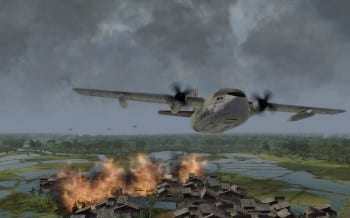
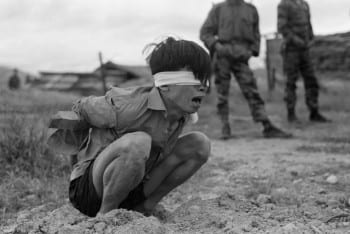
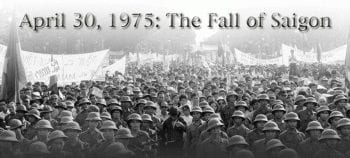




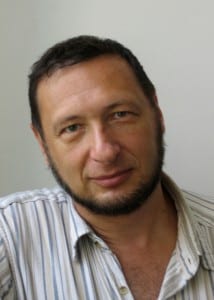
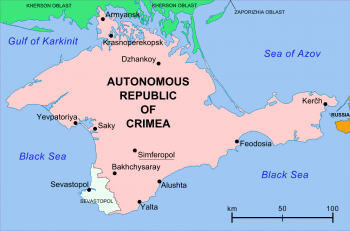
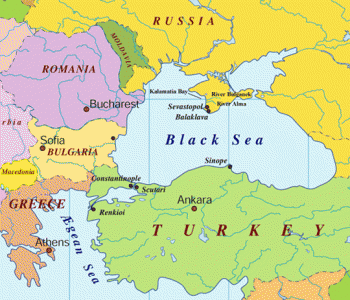
 [T]he Strelkov press conference on Sept. 11 (2014) is, I believe, a historical moment because it marks the move of Strelkov from the Novorussian military struggle into the much larger, and far more dangerous struggle, the struggle for the political future of Russia. This in itself is no necessarily unexpected, but the way he did it was a surprise, at least for me. But before I zoom out to the bigger picture, I think that it would be helpful to try to summarize some of the key points of his presentation (thanks to Marina, you can download the full English transcript by clicking
[T]he Strelkov press conference on Sept. 11 (2014) is, I believe, a historical moment because it marks the move of Strelkov from the Novorussian military struggle into the much larger, and far more dangerous struggle, the struggle for the political future of Russia. This in itself is no necessarily unexpected, but the way he did it was a surprise, at least for me. But before I zoom out to the bigger picture, I think that it would be helpful to try to summarize some of the key points of his presentation (thanks to Marina, you can download the full English transcript by clicking 